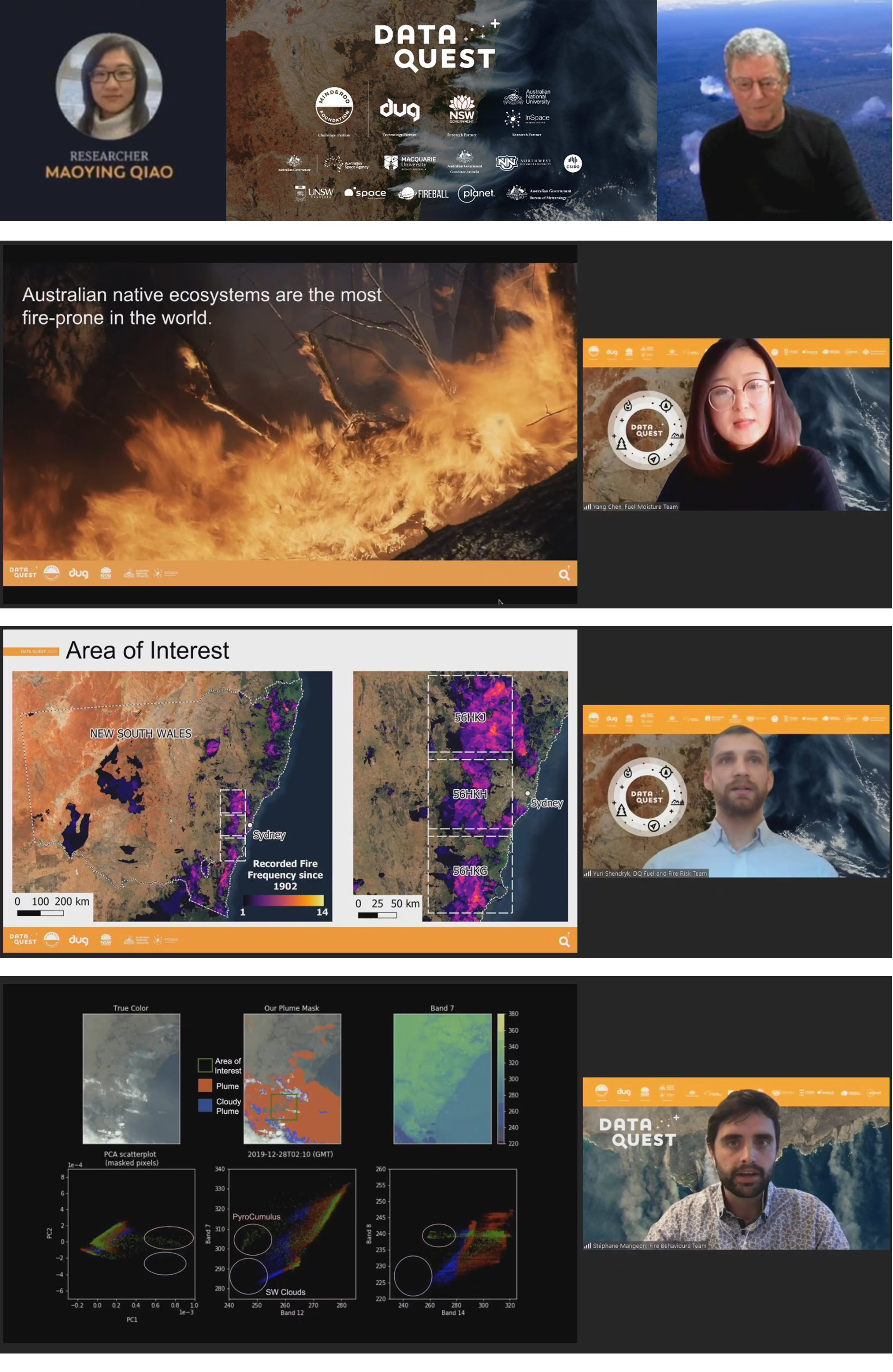Detecting fires, assessing fuel, and predicting behaviour – September 2020
As we move into the 2020/2021 bushfire season, the four Data Quest teams have been working hard on three challenges:
- Improved fuel assessment
- Early detection (and improving the identification of false positives)
- ML fire behaviour models
It was an exciting experience for the four CSIRO staff who participated. Scientists from diverse backgrounds, generally Earth Observation, Data Science or Bushfire experts, were placed into teams of 4 to try and solve an issue in the Bushfire space.
The Centre for Earth Observation formed part of the organising team, and had a big job of gathering numerous domain and technical experts from across the globe to support the researchers and ensured a compute environment and high-value datasets (inc. Planet images) were ready for teams to use. The Challenge also aimed to implement Agile management practices which are now common in technology and startups, and very promising for applied research.
The teams worked on a 1-week (full-time) research sprint with many weeks of part-time commitments around the sprint. Normally, the program is held over 8-weeks and in-person, which would have made it much more enjoyable, but COVID happened… The main outcomes of the Data Quest was a presentation to key stakeholders, a tech memo, and gitlab code.
Overall, in the words of one participant, “if you enjoy collaborative and fast-paced work, I would highly recommend the Data Quest (and similar programs). It is a great experience to quickly get to know about a topic and to broaden your network and exposure as an early career scientist.”
In case you missed the showcase, here is the recording.

CSIRO participants presenting their results at the Data Quest Challenge showcase
